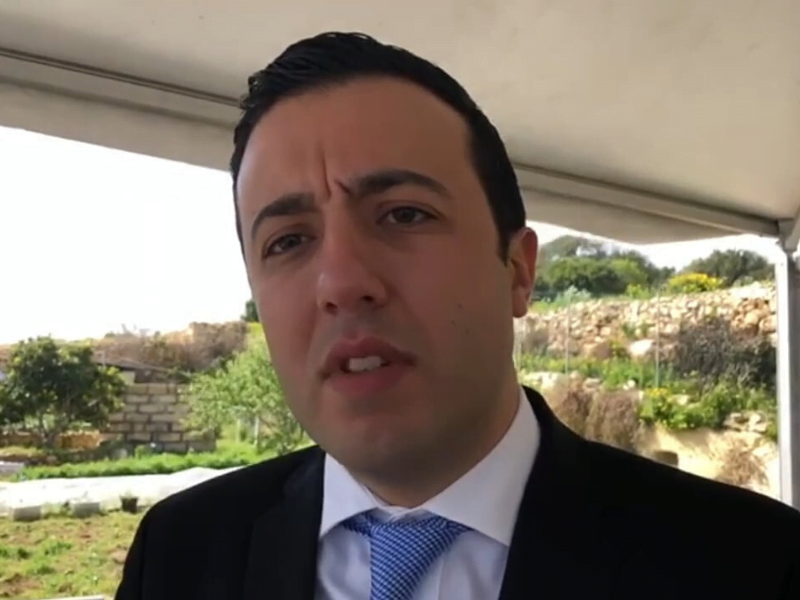Although the idea of appointing a minister to be in charge of the region that’s his electoral watershed has always been questionable in terms of good governance, the reassigning of the unit responsible for controlling hunting and trapping nationally to the Gozo Minister verges on the indecent.
It gives the concept of Minister for Gozo a new logical dimension. We have gone from a minister whose aim is supposed to raise the profile of Gozitan needs on the national agenda to a minister now also put in charge of a unit with the national remit being run from a ministry dedicated to – and based in – a region of the country.
That unit is called the Wild Birds Regulation Unit (WBRU) – a misnomer: wild birds cannot be regulated – and it’s tasked with the conservation of avifauna mostly through control of hunting and trapping. Key personnel in the unit have been active in hunting communities and lobbies in the past and are understood to be sympathetic to hunters and trappers.
At the outset of its formation, it focused much energy into derogating from EU law to facilitate a finch trapping season. The European Court of Justice eventually shut down finch trapping outright.
There may now be electoral expediency in having the WBRU follow Clint Camilleri to the Gozo Ministry. Camilleri is a hunter or trapper himself – he is variably referred to as a hunter or trapper in media reports – and that makes him popular with the hunting fraternity.
During his two-year-plus tenure as Parliamentary Secretary for Agriculture, Fisheries, and Animal Rights, when the WBRU was also under his wings, Birdlife Malta regularly lamented about the continuity of a trend of slackening enforcement effort.
This included reports of widespread finch trapping (despite a ban by the European Court of Justice) under cover of plover and thrush trapping – the latter is another derogation that’s subject to infringement proceedings by the EU Commission.
Support for the WBRU’s move to Gozo among the hunter’s lobby shows that the move may yield electoral dividends for the Labour Party. After the ECJ shut down the finch trapping season, Labour has been putting out the message that it’s the Party that took the fight to Europe on trapping (as opposed to PN, which had phased out trapping in 2009). And the latest move of the WBRU, which might even require legislative tweaking, will serve to assuage hunters and entice or retain their electoral support as an interest group.
Yet the greatest windfall belongs to Camilleri, now having ownership of hunting as minister of the region where hunters and trappers have the largest proportional electoral clout. The fact that the referendum on spring hunting in 2015 was swayed in favour of spring hunting by Gozo’s strong pro-hunting percentage is not lost on political strategists.
In this sense, according to Gozitan Labour Party sources, the vehemence of Birdlife Malta against the reassignment of the WBRU, coupled with media clamour, may well deliver more votes to Camilleri. And for the Labour Party, it may increase its vote tally in Gozo, traditionally a PN-leaning district that has in recent years tipped towards Labour.
Successive Gozo Ministers have, to varying degrees, revelled in their ministerial largesse as a chance to raise their profile among voters. I am not necessarily talking about favours for constituents or nepotism; I am also talking about subtler measures and initiatives.
There’s circumstantial evidence, for example, of project delivery being prioritised in electoral strongholds. The same patterns are observable in Malta, but Gozo ministers have potentially greater possibilities by virtue of lording over the entire region that forms their electoral watershed.
This is one of the reasons why Gozo Ministers have been keen to gather greater responsibilities and concurrently larger budgets.
In some sectors, this has fostered parallel administrative structures that are a drain on national resources. That intensifies – rather than addresses – Gozo’s development laggardness. This is because departments within the Gozo Ministry would lack the expertise and institutional capacity for professional delivery. An example of this can be seen by the improvements in the delivery of health and education since the reabsorbing of these two sectors by the national government in 2013.
Another similar situation exists in roadworks and infrastructural projects. These tend to take much longer in Gozo than the equivalent in Malta. Renovations of squares can drag on for years. The feeling is that these works could be delivered more efficiently and professionally by the national agency, Infrastructure Malta.
Camilleri himself alluded to this last summer when he said Infrastructure Malta was “changing the roads in Malta with its efficiency and professionalism” and it was “in need of being allowed to operate in Gozo.”
After his appointment as Gozo Minister, he has now said that the Gozo Ministry would seek Infrastructure Malta’s support and advice.
Camilleri has insufficient time until the election to roll out a programme based on his ideas; mostly he’ll be limited to the programme already planned. To this end, he has promised greater efficiency in roadworks and renovations. He announced this at St Francis Square, outside his office, which he promised would reopen to traffic by summer. Yet it’s unclear whether that signifies improved efficiency considering the paving was getting underway when he was talking.
In this context, the reassignment of the WBRU under his wings may well be the greatest electoral boon for Camilleri, and the Labour Party.












